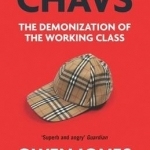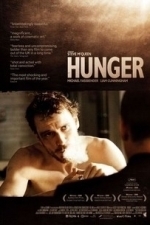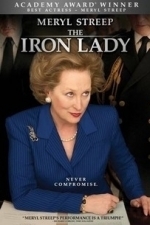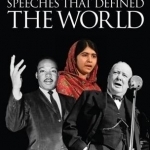
Speeches That Influenced the World
Book
Speeches that Defined the World is a collection of the most potent and memorable speeches throughout...
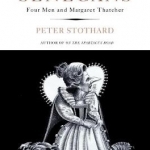
The Senecans
Book
A year after the death of Margaret Thatcher, a young woman arrives to ask Peter Stothard, former...
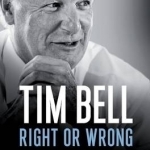
Right or Wrong: The Memoirs of Lord Bell
Tim Bell, Charles Vallance and David Hopper
Book
Tim Bell is the original 'spin doctor'; the Chairman of Bell Pottinger public relations, and one of...
Suswatibasu (1701 KP) rated Chavs: The Demonization of the Working Class in Books
Oct 1, 2017
From the miners' strikes and Hillsborough, to the modern day label of Chav, the working class have been vilified in order to divide, rule and exploit. Owen Jones explains the ideology fairly well but falls short in providing detailed figures.
And while I agree with most of what he says, including the working class should all stick together, there were some elements that he defends including racists such as Jade Goody, that I could not get on board with. Good, but slightly disappointing.
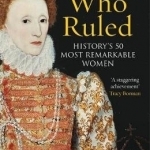
Women Who Ruled: History's 50 Most Remarkable Women
Book
'Poisoners', 'whores', 'witches' and 'murderers' - or so their enemies claimed. From Queen Nefertiti...
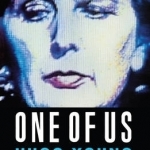
One of Us
Book
In this acclaimed political biography, Hugo Young traces Thatcher's journey from her apprenticeship...
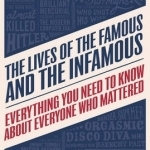
The Lives of the Famous and the Infamous: Everything You Need to Know About Everyone Who Mattered
Book
This book helps you read about the man who convinced Einstein there was a God, the newspaper...
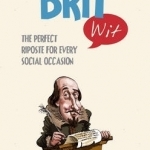
Brit Wit: The Perfect Riposte for Every Social Occasion
Book
'In politics, if you want something said, ask a man. If you want something done, ask a woman.'...
Alec Baldwin recommended Hunger (2009) in Movies (curated)
Movie Metropolis (309 KP) rated The Iron Lady (2012) in Movies
Jun 10, 2019
Streep teams up with Mammia Mia director Phyllida Lloyd in the Iron Lady, a biopic surrounding the life of ex-Prime Minister, Margaret Thatcher and between the two of them and a wonderful supporting cast, deliver a stunning but disappointingly safe take on the 86 year olds life.
The film opens with a frail looking woman wandering the streets and buying a bottle of milk, we soon learn that this woman is of course, Baroness Thatcher. After a thought provoking moment of silence, the scene is switched to her current home where she is kept under lock and key, struggling with ever worsening dementia. Her constant conversations with dead husband Dennis, played fabulously by Jim Broadbent are emotional and form the basis of the entire film.
It is in these scenes that we begin to ‘study’ Thatcher’s life from her youth right up until the present day. We see her refusing to give up after failing to gain a seat in the 1950 and 1951 general elections as well as her first steps into Number 10 as the first ever female Prime Minister. Lloyd displays these moments with great finesse and integrates Streep’s portrayal with real footage of Thatcher walking into 10 Downing Street amongst other key moments.
Most of the major events in Margaret’s career are carried over into the film, bar a few notable exceptions. The Grand Hotel bombing, the Falklands war, the death of Thatcher’s personal assistant at the hands of the IRA and of course the controversial Poll Tax all make the grade but are explained in a way that isn’t damaging to the reputation of the Baroness and this is perhaps where the film loses its way a little.
There’ll be no prizes in telling you that Margaret Thatcher was either a fantastic woman who turned around the fates of a country struggling with recession or a woman who nearly destroyed everything we hold dear; depending obviously on your thoughts of her. No matter what thoughts we all have, opinions are opinions. Here, however, the film tries to make up the minds of those watching, rather than allowing an opinion to form on its own and this is perhaps the biggest problem with a political biopic, there is always a sense of bias.
Fortunately, Lloyd stays on the right side of mass appeal and doesn’t give in to mindless brown-nosing.
It is in the films present day moments that really shine. Seeing a woman who wanted to change the world struggle to cope with the loss of her husband and fall into dementia is, no matter what your opinion on the ex-Prime Minister, heart-breaking. It is here, that sympathy is found.
Streep’s performance is stunning to say the least and she is a joy to watch. Her transgression from young, enthusiastic Thatcher to the old and frail woman we see today is yes, in part down to the astonishing make-up given to her throughout but mainly because of her ability as an actress. She, like the lady herself takes charge of every scene she is a part of, something which many actresses struggle to do. Streep may have had her critics in being cast for this film, but she has proved them wrong. It will be a crime if she isn’t nominated for an Oscar this year.
Of the films other cast, Olivia Colman does well as Margaret’s daughter Carole and as mentioned previously, Jim Broadbent is brilliant as the deceased Dennis Thatcher; he fits the role perfectly and again should be nominated for an Oscar later this year. The supporting cast includes the likes of Anthony Head as Geoffrey Howe and Nicholas Farrell as Thatcher’s murdered assistant Airey Neave, but the scenes with these characters are often overshadowed by Streep’s presence.
The Iron Lady is a joy to behold. It makes you proud to be British, to know that we as a country can produce films of this calibre and it shows the world just what a woman Margaret Thatcher was. In the scenes showing Thatcher’s spiral into dementia is where it becomes most touching, but throughout, we get a full, if slightly biased view of her 11 and a half years in office and Meryl Streep does the old girl proud.
Think what you will of the former Conservative leader, but The Iron Lady is worth a watch for Streep’s performance alone.
https://moviemetropolis.net/2012/01/12/review-the-iron-lady-2011/
